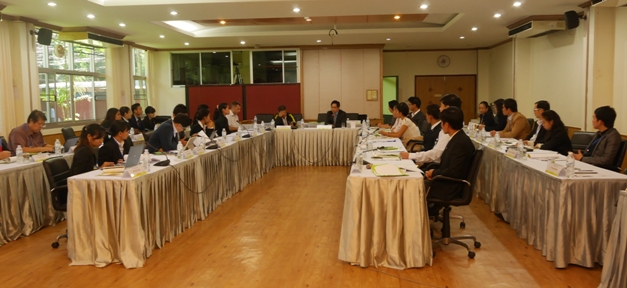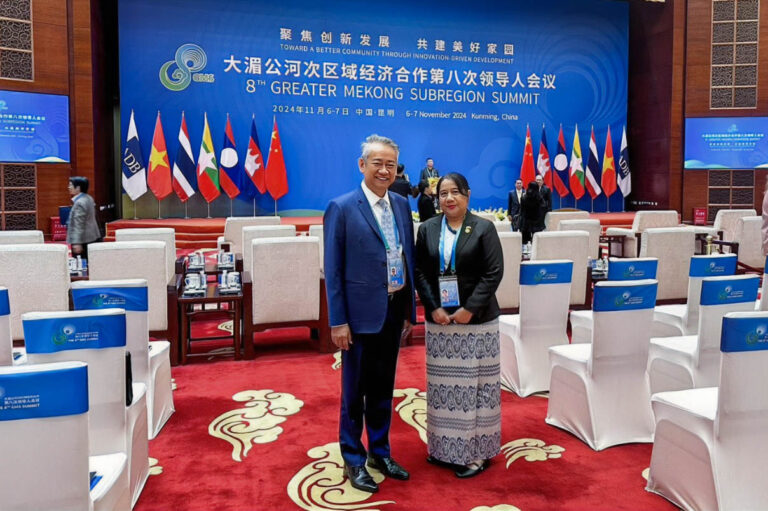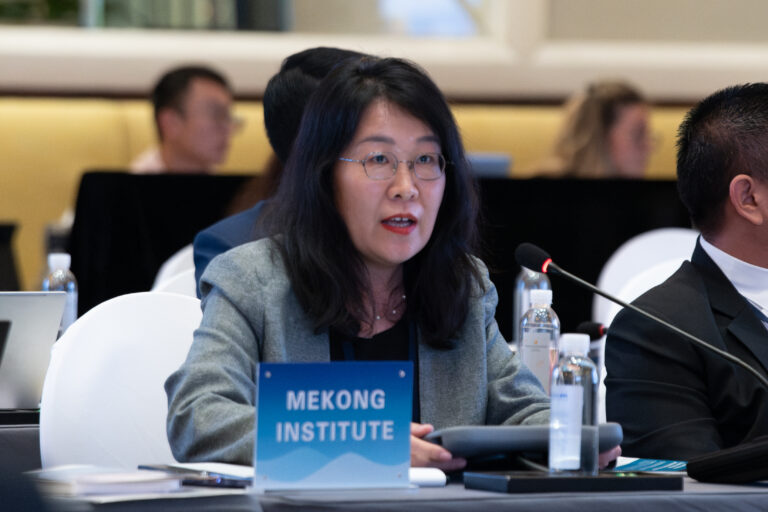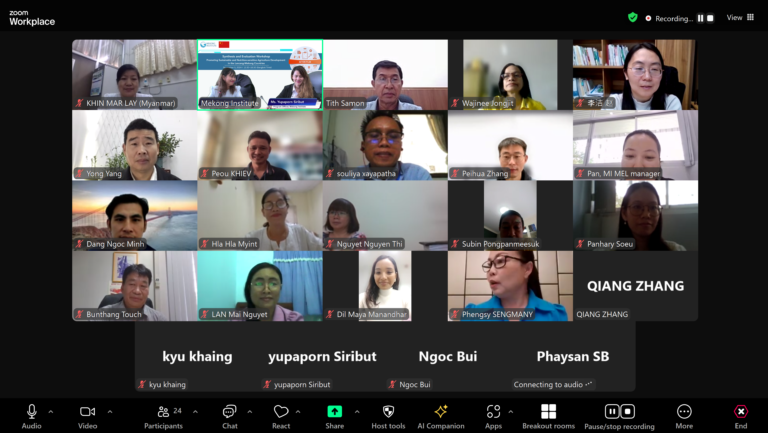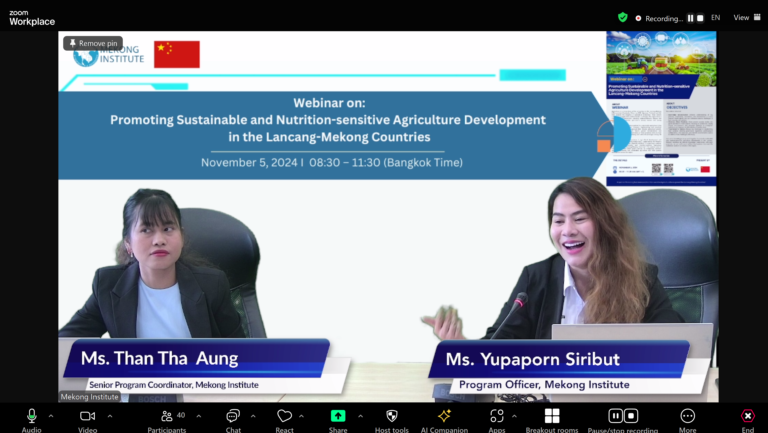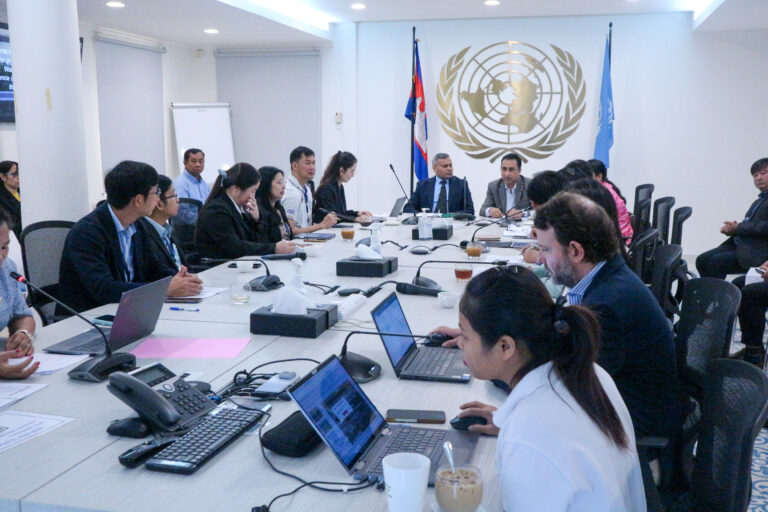Capable human resources will enhance the cooperation among countries in the Greater Mekong Sub-region (GMS) with other ASEAN (Association of Southeast Asian Nations) member states, especially when the AEC (ASEAN Economic Community) is just one step ahead. Realizing such an important role of human resources and with the support from the New Zealand Aid Programme (NZAP), Mekong Institute (MI) has operated many capacity development programs since 2012 to narrow the development gap of four new ASEAN member countries, Cambodia, Lao PDR, Myanmar, and Vietnam through full AEC integration. One of these programs is the Mekong Institute–New Zealand Ambassador’s Scholarship program (MINZAS) which aims at building the research capacity of young researchers from the CLMT (Cambodia, Lao PDR, Myanmar, and Thailand). The program is now in its third year.
In the third phase of the one-year program cycle with four phases, on September 9-10, 2014, MI organized the MINZAS 2014 Roundtable Meeting that brought together 12 scholarship recipients from CLMT to MI Residential Training Center. They presented their research findings to an assembled panel of subject matter experts, researchers, MI program staff, and academic advisors from across the region. The key topics of the presentations include Gender Issues, Rural Development, and Cross-border Trade and Investments.
In the opening remarks, Dr. Watcharas Leelawath, MI Director, expressed his supports to the program and said that he will continue to support other students who will join the program in the next batch. He then congratulated and encouraged the students to come up with good researches and good policy recommendations since the research results are not only for disseminating purpose but also for pushing forward to link with the policy decision making in order to create changes.
It was the second time that these scholars came MI since they joined the program. They came to the 2014 MINZAS Roundtable Meeting after attending the four-week research methodology training course during February and March, 2014 and the completion of their research in their countries under the supervision of their home-advisors. The roundtable meeting thus provided a valuable opportunity for them to share field-work experiences, enhance their research skills, and reestablish contact with their region-wide MINZAS fellows.
“The Roundtable Meeting is very useful because it refreshed my knowledge and it is a good preparation for my thesis defense in my university. I also greatly appreciate the resource persons because they provide good suggestions that are applicable to my studies.” Ms. Vilasinee Sukka, a MINZAS 2014 recipient from Thailand.
The MINZAS scholars’ amended research findings for publishing in January 2015 in MI ‘Working Paper Series,’ which will be distributed among GMS research institutions, universities, academic libraries, and to other development stakeholders in hard copies. It will also be available for free download on MI’s website.


